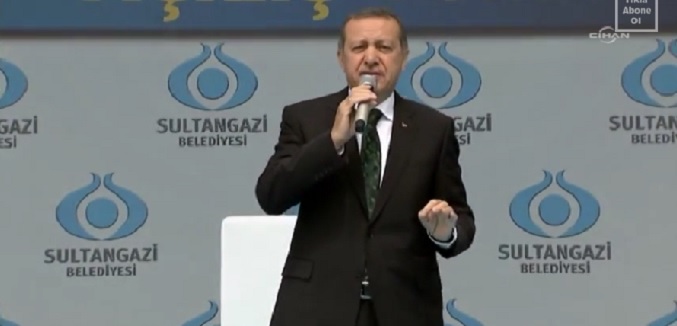The Wall Street Journal on Friday assessed that Turkish Prime Minister Recep Tayyip Erdogan continues to maintain a firm grip on power – a year after Turkey was rocked by the anti-government Gezi protests, and many months into a massive graft scandal that has implicated the premier and other elites from his ruling Justice and Development Party (AKP) – after Erdogan brushed off domestic unrest as the result of foreign conspiracies aimed at undermining Ankara.
Following the summer protests and a corruption probe that forced a cabinet shuffle in December, both of which Mr. Erdogan alleges are part of the same foreign-backed plot to oust his government, the government also moved to consolidate its power.
Thousands of police, prosecutors and judges have been removed from their posts, while AKP lawmakers passed laws giving the government more oversight over the judiciary, intelligence services and the Internet. Critics, including Turkey’s Western allies, have slammed the moves as eroding constitutional checks and balances.
The report came a day after Jonathan Schanzer and Merve Tahiroglu, respectively the vice president for research and a Turkish researcher at the Foundation for Defense of Democracies (FDD), outlined how Erdogan has used anti-Israel populism to bolster his political base.
To be sure, strategic and economic interests may nevertheless pave the way for a loveless Israeli-Turkish rapprochement. But the Netanyahu government has no illusions: Erdogan’s Turkey will never be the ally to Israel today that it was in the 1990s. Under an Islamist leadership that offers an anti-Israeli narrative for every domestic crisis, Turkey has become a hostile environment for Israel — and appears likely to remain that way as long as Erdogan dominates politics in Ankara.
A Turkish court last week demanded the arrest of four top Israeli military figures over the 2010 Mavi Marmara incident, in which nine Turkish citizens had been killed after they attacked Israeli commandos interdicting the Marmara as it attempted to run Jerusalem’s blockade of the Hamas-controlled Gaza Strip.
Schanzer and Tahiroglu understatedly noted that “not everyone believes” Erdogan’s public claims that he had nothing to do with the ruling, in no small part due to the AKP’s “increasing control over the Turkish judiciary.” The moves by Erdogan and the AKP, while facilitating the consolidation of domestic power, have drawn sustained foreign criticism, a dynamic that multiple Turkish outlets have commented on in recent days.
Hurriyet asked late Friday “has ‘the West’ crossed out Erdogan’s name,” while Zaman noted that once-close ties between Erdogan and President Barack Obama remained a political liability for the U.S. leader, and that multiple senators were expected to hold up the administration’s next ambassadorial appointment to Turkey so as “to put pressure on” the President over that relationship.
[Photo: Cihan Haber Ajansi / YouTube]




